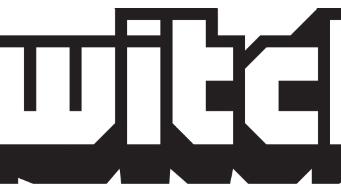infrastructure
Latest

Audi's new traffic-light countdown is the first step to smarter cities
As I get closer to the intersection, a countdown starts on the dashboard. The light is currently green, but the new Audi I'm driving tells me it'll be 147 seconds before I make it through the junction. Sure enough, the light turns yellow, then red, and I come to a stop as the numbers tick off in reverse. Once it hits four, the timer disappears, and within a few seconds the light turns green. It seems like a trivial feature, a timer telling you when a traffic signal is about to change. But in practice, it's quite useful. More important, it's currently available in Las Vegas, a baby step toward a future where cars and cities talk to one another to reduce gridlock.

Under Trump the future of Net Neutrality and broadband is uncertain
On January 20th, Donald Trump will be sworn in as president of the United States. With a Republican-controlled House and Senate behind him, things in this country are going to change... a lot. One of the things that might be on the chopping block early in his administration is Net Neutrality.

US is ready to hack Russia if it interferes with the election
American officials are nervous that Russia's alleged attempt to influence the election could extend to the vote itself, and they aren't willing to take any chances. A senior intelligence source tells NBC News that US cyberwarfare agents are in a position to hack Russian critical infrastructure (including command systems, the electrical grid and telecoms) if there's evidence of an attack that disrupts the election in a "significant way." The US isn't expecting such a large breach, but the message is clear: we can hurt you if you meddle with the democratic process.

Audi cars will start talking to city traffic systems this fall
If you've ever been stuck at a red light that seems to last an eternity, you'll be happy to know that Audi announced that it's going to start work with municipalities to tell its cars when a light is about to turn green. The automaker says this is the first step in a Vehicle to Infrastructure (V2I) partnership with cities that will be launching this fall.

Facebook hires Google Fiber co-founder Kevin Lo
As Facebook continues its plan to help connect people around the world to the internet, it's finding help from Google. Recode reports that former Google Fiber exec and co-founder Kevin Lo has been hired to help Facebook make infrastructure deals for its connection efforts. Facebook told the outlet Lo will not be working on Free Basics, and that it has no plans to start an ISP of its own, but even wireless tech like Terragraph nodes or drone-delivered internet will need to connect to a backbone somehow. In a Facebook post confirming the move, Lo said he's going "help shape our strategy and investments with partners to build wireless technologies and ecosystems that improve global connectivity."

Obama's last budget calls for better infrastructure, cybersecurity
With President Barack Obama's final year in office comes one last, contentious dance with Congress over a $4.1 trillion dollar budget for 2017. According to the New York Times, some $3 trillion of the budget the president proposed has been earmarked for so-called "mandatory" spending, and will be funneled toward federal assistance programs and combating interest on the nation's debt. The president is pushing to use that remaining trillion-or-so dollars to build a foundation for future work he thinks the country desperately needs.

Kenyan slums dispense clean drinking water through ATMs
In many parts of Kenya's capital of Nairobi, clean water is difficult to come by. That often means taking your chances with dysentery from an impure source, or pay through the nose from a "water vendor." But the BBC reports that thanks to a partnership between the African nation and Danish water company Grundfos, that's about to change. The Nairobi City Water and Sewerage company has just opened four ATM-like kiosks that will dispense 20 liters of potable water for just half a Kenya shilling (about half a US penny). That's 100 times less expensive than what vendors charge for the same amount. Residents simply have to swipe a smart card and put a jug under the spigot, and the access card balances can be refilled either at the kiosk itself or via mobile phone.

Scientists make strides in beaming solar power from space
The idea of powering humanity by gathering an endless supply of solar energy from space has taken a huge step towards becoming a reality. Scientists working for JAXA, Japan's space administration, have announced a major breakthrough in wireless power transmission ... in that they've actually been able to do it with a high degree of accuracy for once. The team reportedly beamed 1.8 kilowatts, enough juice to power an electric tea kettle, more than 50 meters to a small receiver without any wires. Up next: scaling the technology for use in tomorrow's orbital solar farms.

London will be a 5G city by 2020, promises Boris
As London becomes the bright shining center of the European tech scene, it's only natural that the city would like to maintain its place at the top of the pile. That's why mayor Boris Johnson is pledging that London will roll out a 5G network across the city by 2020. It's part of a long-term infrastructure investment plan that'll see connectivity given equal prominence to more conventional resources like transport, energy and water. At the same time, broadband speeds for each home in the capital will be made public alongside data from the networks in order to find communication blackspots that require additional work. Of course, given that 5G as a standard has yet to be defined, it'll be interesting to see if the mayor can make good on his promise -- unlike the one about turning London into a giant WiFi hotspot by 2012.

Spying malware leaves countries' energy grids open to attack
Cyberwarfare campaigns against Western energy grids aren't just the stuff of action movies these days -- they're very, very real. Symantec has discovered a likely state-sponsored hacking group, nicknamed Dragonfly, that has been using phishing sites and trojans to compromise energy suppliers in the US and several other countries. Unlike targeted, destruction-focused malware like Stuxnet, this appears to be a broader spying effort bent on collecting information about national infrastructure. However, it still creates a back door that leaves companies vulnerable to full-fledged attacks if they don't spot the intrusions; it wouldn't take much to create real problems.

Chicago is getting lamp posts that count people and track pollution
Apparently, Chicago is becoming even more like its Watch Dogs doppelganger than we first thought. Researchers are deploying networked, sensor-equipped lamp posts from this July onward to learn how they could help urban planning and safety. They'll collect environmental data like air quality, noise levels and wind, and they'll also measure foot traffic by counting the number of passing cellphones. If the project takes off, Chicago officials could easily tell if air pollution is on the rise, or if a narrow sidewalk is creating a choke point.

Bringing internet to the Amazon takes more than cables and laptops
Internet access is something most of us likely take for granted, but for portions of the developing world, reliable connectivity isn't available. The New York Times recently cast its lens on an ultra-tiny Peruvian village and the struggle to install and maintain a solid communications system, chronicling the journey and hardships of maintaining telecommunications in the middle of the jungle. There, a a busted internet connection takes as much as a year-and-a-half to repair and One Laptop Per Child computers are charged via a series of car batteries. Despite the village being a world away, however, there are familiar arguments. The issue of not having enough laptops for everyone in the village (some 65 people) is countered by the argument that they serve as little more than entertainment or an anesthetic; if the village had a road, the kids could travel to bigger cities nearby and be inspired by the real world instead of cyberspace. It seems that some things don't change regardless of where you live. [Image credit: markg6/Flickr]

Access Twitch servers from Paris, with love
Gameplay broadcasting platform Twitch announced the addition of servers in Paris, France, bolstering the service's stability in Europe. The Paris addition is just the latest in a string of Twitch overhauls; Twitch also upgraded its infrastructure this month in Dallas and London while Los Angeles got a facelift back in January. December saw an upgrade for Amsterdam, as well as a new a "point-of-presence" in Prague. Of course, this good news will particularly surface when Joystiq Streams eventually tours the globe, streaming games like Dark Souls 2 and Infamous: Second Son from exotic locales (hey, one can hope). Twitch's improvements in the past few months go beyond its infrastructure, as the company launched support for iOS and Android game streaming, as well as its app for Xbox One. Twitch also inked a deal to become E3's official streaming partner for three years following its corporate umbrella name change in February. [Image: Twitch]

EVE Evolved: What DUST 514 should have been
It's now been almost six months since DUST 514's official release, and I think it's safe to say it hasn't quite lived up to expectations. The game was lauded for its revolutionary realtime link with the EVE Online universe, but so far there's very little back-and-forth between the two titles. Originally intended as an MMO in its own right but also as an integral part of EVE's territorial endgame, DUST now exists largely as a lobby-based first-person shooter with the twist that equipment is lost on death. Even the planetary conquest portion of DUST that could be considered its most MMO-esque element has been abstracted into a series of instanced and scheduled 24v24 battles. DUST's main rival during development was the PC-based PlanetSide 2, and had the two games released on the same platform, I'm sure that rivalry would still be in the media spotlight. I've been playing PlanetSide 2 for just a few days, and I can already see elements that would make it a far better fit for the EVE universe than the current version of DUST. So what could DUST learn from its non-console-only counterpart? In this week's EVE Evolved, I look at how PlanetSide 2 handles issues of persistence, planetary conquest, and vehicle spawning, and why I think DUST 514 should be borrowing a few tricks from its game design.

EU toughens penalties for internet-based crimes
Virtual crime can lead to very real damage, and the European Parliament knows this well enough to have just issued a draft directive toughening up the EU's penalties for internet-based violations. Get caught running a botnet and you'll face a minimum of three years in prison; dare to attack critical infrastructure and you may spend five years behind bars. Don't think of hiring someone for corporate espionage, either -- the directive makes whole companies liable for online offenses committed in their name. EU nations will have two years to adopt the directive as law, although an existing, unofficial agreement suggests that at least some countries won't wait that long to enforce the new rules.

BSkyB paying Virgin Media $74 million for a network makeover
Customers with Sky Broadband might find their provider's capacity crawling northward toward the end of the year. The broadcaster is paying Virgin Media's business arm £49 million ($74 million) for some of Richard Branson Liberty Global's deliciously fast fiber infrastructure. While there's no mention of BT, we wouldn't be surprised if this technological makeover was prompted by its corporate rival's recent assault on Sky's sporty golden goose.

AT&T to spend $14 billion over the next three years on broadband, wireless infrastructure
AT&T has announced that it will be dropping a cool $14 billion over the next three years to beef up its wireless and wireline broadband networks. Project Velocity IP (VIP) will see the company attempt to boost its 4G LTE network to support 300 million users by year-end 2014 and expand its wired IP broadband base to 75 percent of customer locations by late 2015. In addition, the operator intends to have fiber deployed to a million business locations and plans to expand U-verse (internet, TV and phone combos) by 8.5 million to 33 million customer locations. When it's all said and done, AT&T predicts that 99 percent of customers will get broadband services one way or other, with $8 billion in investment heading toward wireless projects and $6 billion goosing up wired broadband -- so, nobody can say the telecom giant is hoarding all those profits. Check the PR after the jump for a full breakdown.

Clearwire moves forward with Huawei in network upgrades after federal consultation
China's Huawei has found itself followed by a cloud of suspicion from governments and national security agencies, both in America, and further afield. A recent announcement from Clearwire stating it will use the firms hardware in a network upgrade, however, could see some sunshine of confidence finally poking through. Reuters reports that the service provider consulted several technical departments from various federal agencies before making the decision. Clearwire already uses some Huawei equipment in its infrastructure, and it's in these areas that the hardware will be used for upgrades. The firm went on to assure that, overall, less than 5 percent of its LTE budget involves Huawei gear, and irrespective of origin, all vendors are subject to approval from US government approved third parties.

Google takes us inside their data centers, shows you where the internet lives (video)
Ever fancied a look inside one of Google's cavernous server farms? Given the security issues, the company isn't likely to just let anyone mooch around -- but understands if you're curious. That's why it's adding a special collection to its Street View data that lets you wander inside without a big trek to Iowa, Belgium or Finland. If you'd like to sample some of the delights, you can check out our gallery or head down past the break to get a video tour of the facility in Lenoir, NC. [Image Credit: Connie Zhou / Google]

Kaspersky Labs preps its own OS to guard vital industry against cyberwarfare
Kaspersky Labs' namesake Eugene Kaspersky is worried that widely distributed and potentially state-sponsored malware like Flame and Stuxnet pose dire threats to often lightly protected infrastructure like communication and power plants -- whatever your nationality, it's clearly bad for the civilian population of a given country to suffer even collateral damage from cyberattacks. To minimize future chaos and literally keep the trains running, Kaspersky and his company are expanding their ambitions beyond mere antivirus software to build their own, extra-secure operating system just for large-scale industry. The platform depends on a custom, minimalist core that refuses to run any software that isn't baked in and has no code outside of its main purposes: there'll be no water supply shutdowns after the night watch plays Solitaire from an infected drive. Any information shared from one of these systems should be completely trustworthy, Kaspersky says. He doesn't have details as to when the OS will reach behind-the-scenes hardware, but he stresses that this is definitely not an open-source project: some parts of the OS will always remain confidential to keep ne'er-do-well terrorists (and governments) from undermining the technology we often take for granted.











